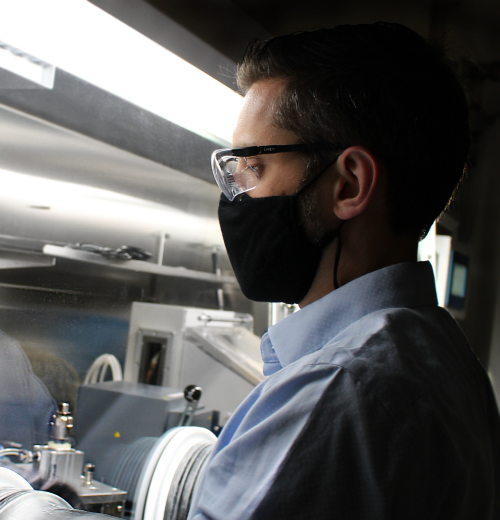5 Questions with the IMat Advisory Team | Featuring Matt McDowell
Jul 02, 2021 — Atlanta, GA

Matt McDowell | Associate Professor; George W. Woodruff School of Mechanical Engineering and the School of Materials Science & Engineering
1. What is your field of expertise and at what point in your life did you first become interested in this area?
My research group at Georgia Tech works on materials for energy storage, such as batteries. I was originally drawn to materials for batteries as an undergraduate for two main reasons. First, I feel that the use and storage of clean energy is a really important area of need for our society, and second, the kinds of materials used inside batteries are fundamentally fascinating!
2. What questions or challenges sparked your current materials research?
My research group specializes in experiments that uncover precisely how materials inside batteries change, transform, and degrade during charge and discharge. We use state-of-the art experiments, such as electron-beam and x-ray imaging, to visualize these changes at very small length scales. These efforts are important since it is only by understanding how materials “work” inside batteries that we can engineer the materials for improved battery performance.
3. Why is your theme area important to the development of Georgia Tech’s Materials research strategy?
We are entering into an era of massive electrification in our society, and materials scientists and engineers at Georgia Tech are working to advance the next generation of materials that will enable this transition. This is an technology area that will only increase in importance in the coming years, and there is a great community at Georgia Tech working on these materials.
4. What are the broader global and social benefits of the research you and your team conduct?
I hope that my group’s research will create the scientific foundation for the development of electric vehicles with longer driving range and fast charging times so that they will be a no-brainer to purchase for the vast majority of people. In addition, our research is also focused on batteries that could be used in electric or hybrid-electric airplanes, which would be really important for decarbonizing the aviation industry.
5. What are your plans on engaging a wider GT faculty pool with IMat research?
We have a really strong group of faculty, postdocs, and graduate researchers working on materials for energy storage and conversion at Georgia Tech. In my IMat role, I’ve started working on a website that showcases the advances of GT faculty and makes it easier for outside entities to learn about the scientific and technological progress in this area at Georgia Tech.
Christa Ernst | christa.ernst@research.gatech.edu




